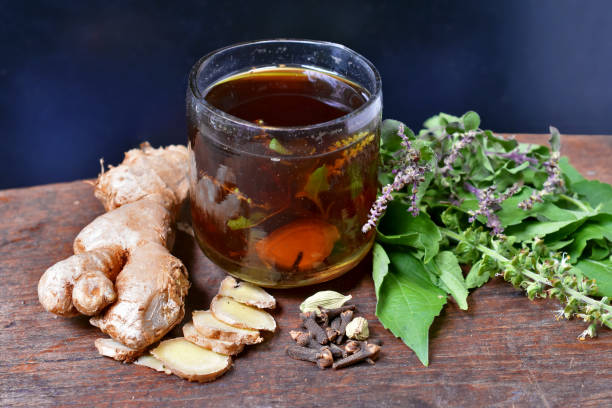Prioritising Health with Balanced Diets for Your Diabetes
Managing diabetes effectively requires a thoughtful approach, and one of the key elements to maintaining control is through a balanced diet. By prioritizing health with balanced diets, individuals with diabetes can stabilize their blood sugar levels, prevent complications, and improve overall well-being. Ayurveda, an ancient system of medicine, emphasizes holistic care, including diet, to manage diabetes in a sustainable and natural way.
In this blog, we will explore the significance of balanced diets for diabetes management, Ayurvedic dietary guidelines, and practical tips to incorporate these principles into daily life.
Understanding the Role of Diet in Diabetes Management
Diabetes is characterized by the body’s inability to properly regulate blood sugar (glucose) levels. Whether it’s Type 1, Type 2, or gestational diabetes, diet plays a crucial role in controlling glucose spikes and maintaining healthy levels of insulin production. A well-planned diet not only manages blood sugar but also promotes overall health, improving digestion, metabolism, and energy levels.
For individuals with diabetes, it is essential to prioritize health with balanced diets. These diets focus on the right mix of macronutrients—carbohydrates, proteins, and fats—along with micronutrients like vitamins and minerals to help the body function optimally without overwhelming it with sugar or unhealthy fats.
Ayurveda and Diabetes: A Holistic Approach
Ayurveda, which dates back thousands of years, offers a natural and holistic approach to managing diabetes. According to Ayurvedic principles, diabetes (Madhumeha) is linked to imbalances in the body’s doshas—Vata, Pitta, and Kapha. These imbalances disrupt metabolism and digestion, leading to fluctuating glucose levels.
The Ayurvedic philosophy focuses on rebalancing the body through mindful eating, lifestyle changes, and herbal supplements. Prioritizing health with balanced diets is at the heart of this approach, ensuring that the body is nourished without exacerbating the symptoms of diabetes.
Key Components of a Balanced Diet for Diabetes
When aiming to improve health with balanced diets, it’s important to know which foods to embrace and which to avoid. Here are some essential components:
1. Complex Carbohydrates
Unlike refined carbohydrates, which cause blood sugar to spike, complex carbs are digested more slowly, providing a steady release of energy. Opt for whole grains like quinoa, oats, and brown rice, which are excellent sources of complex carbs. These grains also offer fiber, a critical element for managing diabetes as it helps control blood glucose levels.
2. Fiber-Rich Vegetables
Vegetables rich in fiber—such as spinach, broccoli, and leafy greens—not only provide essential nutrients but also aid in digestion. Fiber slows down the absorption of sugar into the bloodstream, preventing sudden glucose spikes. Ayurvedic wisdom advises including a variety of seasonal, fresh vegetables in your meals to balance blood sugar.
3. Healthy Fats
Incorporating healthy fats, such as those from avocados, nuts, seeds, and olive oil, can significantly improve the body’s sensitivity to insulin. Ayurveda suggests including ghee in moderation, which is believed to enhance digestion and nutrient absorption without increasing blood sugar levels.
4. Lean Proteins
Proteins help repair tissues and regulate blood sugar levels. Choose lean proteins such as legumes, tofu, and lentils for a plant-based option, or consider fish and chicken for those who consume animal products. Ayurveda also encourages the inclusion of moong dal (green gram) as it is light, easy to digest, and helps balance all three doshas.
Ayurvedic Tips for Managing Diabetes through Diet
Ayurveda emphasizes that it’s not just what you eat but how you eat that impacts your overall health. Here are some Ayurvedic tips to prioritize health with balanced diets:
1. Eat at Regular Intervals
Keeping a consistent eating schedule helps regulate digestion and prevents blood sugar fluctuations. Ayurveda recommends having your largest meal during lunchtime when digestive fire (Agni) is strongest, followed by lighter meals in the morning and evening.
2. Incorporate Bitter and Astringent Flavors
Ayurveda classifies foods based on six tastes—sweet, sour, salty, bitter, astringent, and pungent. For individuals with diabetes, bitter and astringent foods such as fenugreek, turmeric, and neem help balance blood sugar levels and detoxify the body.
3. Use Herbs and Spices
Several Ayurvedic herbs and spices can support blood sugar regulation. Fenugreek (methi), turmeric (haldi), and cinnamon (dalchini) are particularly beneficial for those managing diabetes. These can be easily incorporated into daily meals to enhance their medicinal properties.
Practical Meal Plan Ideas for Diabetes
A healthy, balanced diet doesn’t have to be complicated. Here’s an example of how to prioritize health with balanced diets in your daily routine:
- Breakfast: A bowl of steel-cut oats with chia seeds, flaxseeds, and a handful of berries. Add a pinch of cinnamon for added flavor and blood sugar control.
- Lunch: A quinoa and lentil salad with a side of steamed broccoli, topped with olive oil and lemon juice. Add a small serving of homemade yogurt to support digestion.
- Dinner: Grilled vegetables (zucchini, bell peppers, carrots) with a serving of moong dal and brown rice. Incorporate a teaspoon of ghee for healthy fat.
- Snacks: Almonds, walnuts, and fresh cucumber slices with a sprinkle of rock salt and pepper. You can also enjoy herbal teas made with fenugreek or cinnamon.
Best Diabetologist in Ludhiana
Finding the best diabetologist in Ludhiana can be a game-changer for managing diabetes effectively. Dr. Handa Ayurveda offers expert care tailored to individual needs, combining modern medical science with traditional Ayurvedic wisdom. With a focus on personalized treatment plans, Dr. Handa provides comprehensive support, including lifestyle changes and dietary guidance, ensuring optimal health and well-being for patients with diabetes in Ludhiana.
Conclusion
Diabetes requires a comprehensive management plan, and diet plays a pivotal role. By prioritizing health with balanced diets, you can significantly reduce blood sugar levels and prevent diabetes-related complications. Ayurveda’s holistic approach, with its emphasis on natural, balanced eating, can help bring stability to your life and support long-term health. At Dr. Handa Ayurveda, we are committed to guiding you on your journey toward health and well-being with personalized Ayurvedic solutions.














Post Comment